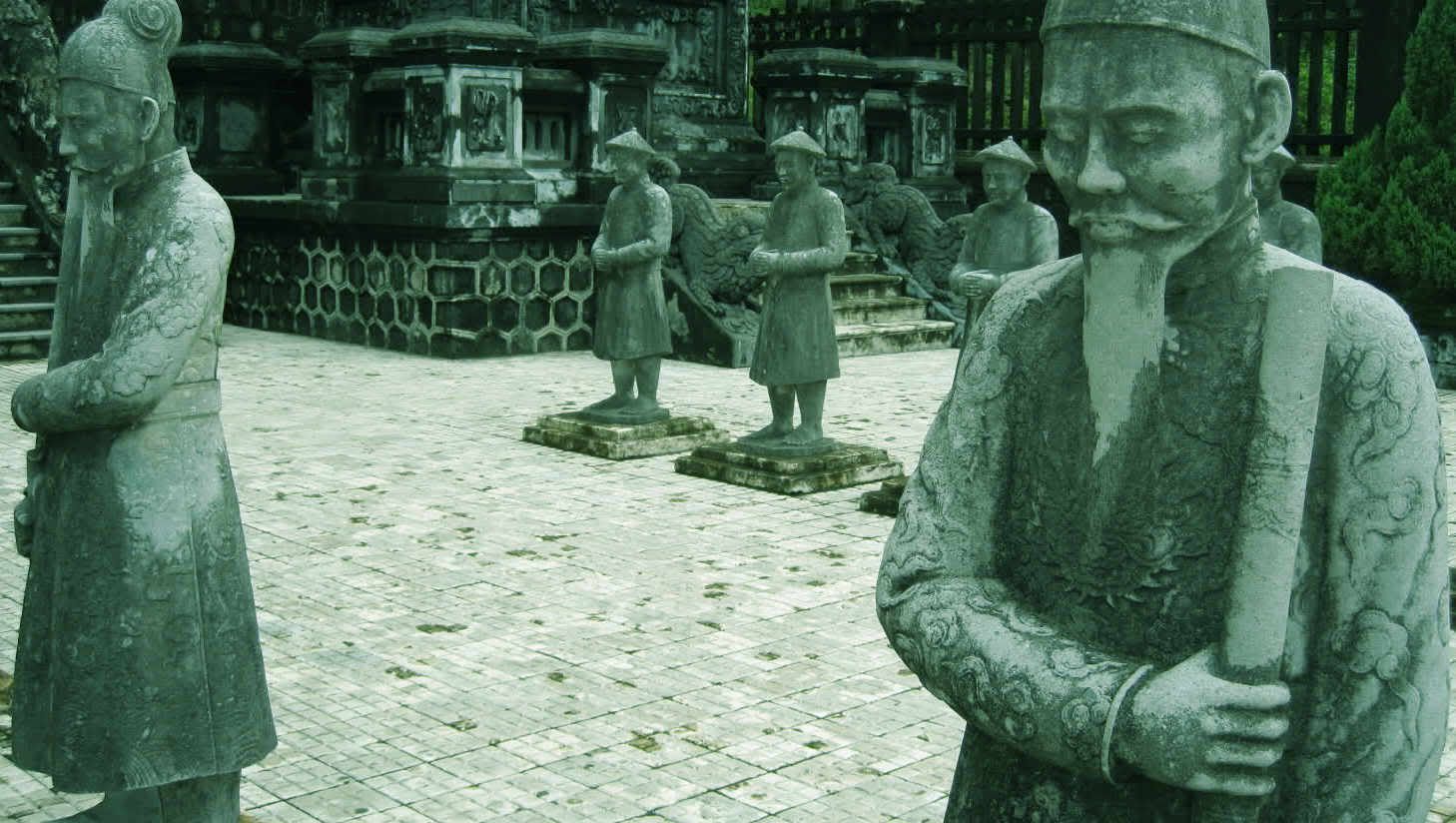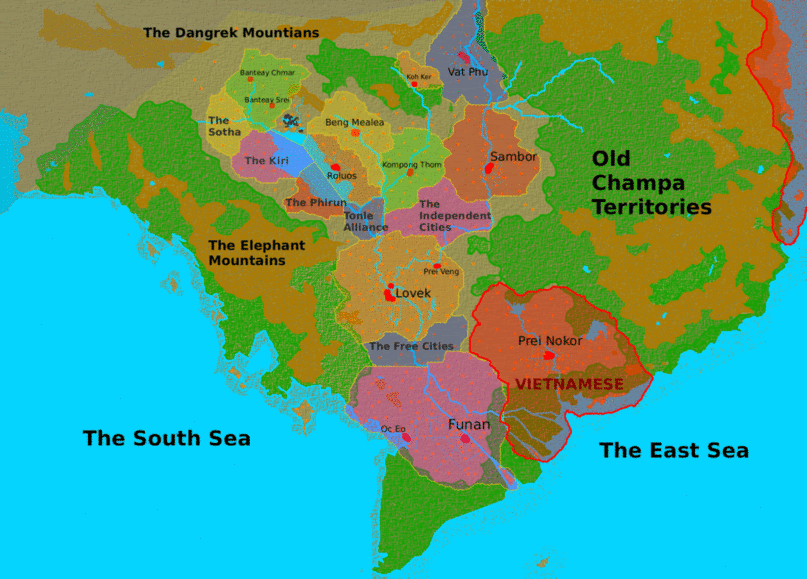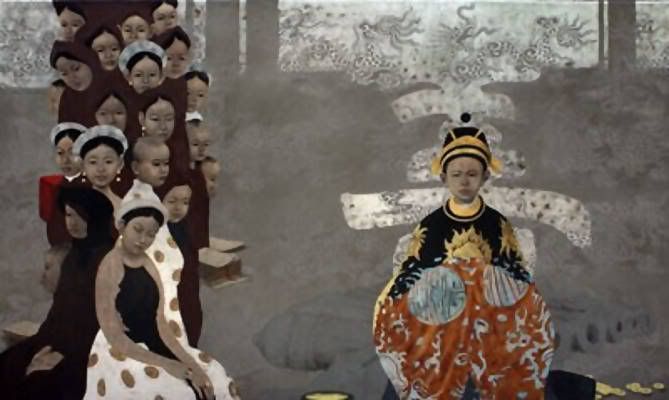End of Edo Area Japan
The shogunate had become a weak governing body and the current shogun desired to give power back to
the emperor of Japan. So in the spring of 1020 Yoshinobu Tokugawa 15th shogun of the Edo area gave
control back to the emperor. The majority of Tokugawa’s retainers joined with the Emperor and by the end
of the summer the rest of Tokugawa’s army was defeated. With this victory the Edo area was done and the
Meiji period began.
With Japan now fully under his control Emperor Meiji sent out an address to all known and unknown nations of
the world:
The Emperor of Japan announces to the sovereigns of all foreign countries and to their subjects that
permission has been granted to the Shogun Tokugawa Yoshinobu to return the governing power in
accordance with his own request. We shall henceforward exercise supreme authority in all the internal and
external affairs of the country. Consequently the title of Emperor must be substituted for that of Taikun, in
which the treaties have been made. Officers are being appointed by us to the conduct of foreign affairs. It
is desirable that the representatives of the treaty powers recognize this announcement.
—January 3, 1030
Mutsuhito Meiji, Emperor of Japan

The shogunate had become a weak governing body and the current shogun desired to give power back to
the emperor of Japan. So in the spring of 1020 Yoshinobu Tokugawa 15th shogun of the Edo area gave
control back to the emperor. The majority of Tokugawa’s retainers joined with the Emperor and by the end
of the summer the rest of Tokugawa’s army was defeated. With this victory the Edo area was done and the
Meiji period began.
With Japan now fully under his control Emperor Meiji sent out an address to all known and unknown nations of
the world:
The Emperor of Japan announces to the sovereigns of all foreign countries and to their subjects that
permission has been granted to the Shogun Tokugawa Yoshinobu to return the governing power in
accordance with his own request. We shall henceforward exercise supreme authority in all the internal and
external affairs of the country. Consequently the title of Emperor must be substituted for that of Taikun, in
which the treaties have been made. Officers are being appointed by us to the conduct of foreign affairs. It
is desirable that the representatives of the treaty powers recognize this announcement.
—January 3, 1030
Mutsuhito Meiji, Emperor of Japan


 Ary glanced over her shoulder one last time, catching the glint of the rice fields as they were slowly erased by her moving perspective. The next time she looked back, there would be only grass and shrubs there, so what was the point? Her home was gone now, as was her community, her village, and her king.
Ary glanced over her shoulder one last time, catching the glint of the rice fields as they were slowly erased by her moving perspective. The next time she looked back, there would be only grass and shrubs there, so what was the point? Her home was gone now, as was her community, her village, and her king. By this time, regular raiding parties were invading deep into Kompong Thong, Sambor, and Roluos' southern half. Due to their long-standing fueds with Beng Mealea, Roluos was affected less than Kompong Thom, which had little experience with armed conflict, and was weak. The invaders sensed this, and the entire kindom of Kompong fell apart within 6 months of Lovek's fall.
By this time, regular raiding parties were invading deep into Kompong Thong, Sambor, and Roluos' southern half. Due to their long-standing fueds with Beng Mealea, Roluos was affected less than Kompong Thom, which had little experience with armed conflict, and was weak. The invaders sensed this, and the entire kindom of Kompong fell apart within 6 months of Lovek's fall.
 "...once acquired, the power long sought turns invariably into harsh control, as the insecurity of the newly enthroned demands strict compliance with the Will. As a child with a toy, the ruler seeks to enjoy that which he has dreamed of for so long, forgetting that much in dreams is either uncontrolled or controlled only by the very recesses of the mind. This strict imposition of one man's order create conflicts within the realm, which in time come to occupy his focus and efforts rather than those original dreams..."
"...once acquired, the power long sought turns invariably into harsh control, as the insecurity of the newly enthroned demands strict compliance with the Will. As a child with a toy, the ruler seeks to enjoy that which he has dreamed of for so long, forgetting that much in dreams is either uncontrolled or controlled only by the very recesses of the mind. This strict imposition of one man's order create conflicts within the realm, which in time come to occupy his focus and efforts rather than those original dreams..."
 They called themselves the Viet, of Dai Viet. They were Chinese, or something close to it. The Khmer had only limited contact with the outside world, especially in that insular and secluded land of Roluos, so there was little context for them to use to form a full understanding. They certainly looked and spoke and acted Chinese, much like the few merchants from that distant land that inhabited the major cities. Yet, there were some distinctions, though Ary could not quite grasp their importance. Regardless, these were a primarily coastal people, though they also were highly adept farmers, who carried with them advanced cultivation techniques that put the Khmer at a decided disadvantage.
They called themselves the Viet, of Dai Viet. They were Chinese, or something close to it. The Khmer had only limited contact with the outside world, especially in that insular and secluded land of Roluos, so there was little context for them to use to form a full understanding. They certainly looked and spoke and acted Chinese, much like the few merchants from that distant land that inhabited the major cities. Yet, there were some distinctions, though Ary could not quite grasp their importance. Regardless, these were a primarily coastal people, though they also were highly adept farmers, who carried with them advanced cultivation techniques that put the Khmer at a decided disadvantage.
 Yes, the slaves... The Viet were not Hindu, nor Buddhist. They seemed to have no religion at all, save a collection of Chinese superstitions intermixed with Confucianism. None of this prevented them from enslaving entire villages. Of course, the distinctions between legal slavery and tribute forced at the point of a sword are perhaps minor, yet there was a new level of degradation and loss of freedom that came with the creation of local courts and "human property" cases. The Viet seemed eager to punish all and any offenses, and many non-offenses, with indenture to the local family or leadership.
Yes, the slaves... The Viet were not Hindu, nor Buddhist. They seemed to have no religion at all, save a collection of Chinese superstitions intermixed with Confucianism. None of this prevented them from enslaving entire villages. Of course, the distinctions between legal slavery and tribute forced at the point of a sword are perhaps minor, yet there was a new level of degradation and loss of freedom that came with the creation of local courts and "human property" cases. The Viet seemed eager to punish all and any offenses, and many non-offenses, with indenture to the local family or leadership.
Comment